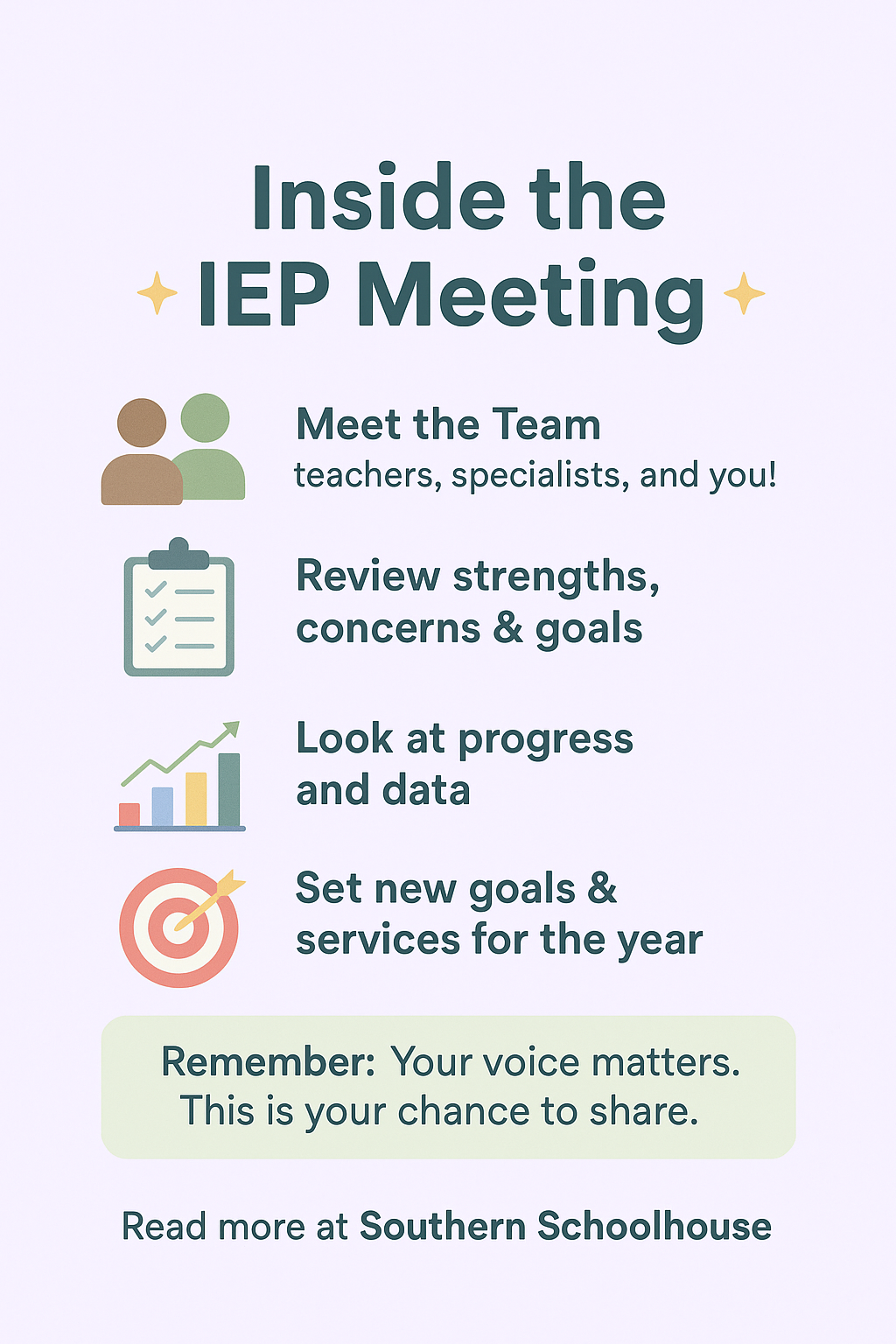Tracking Success: Using Data Collection to Monitor Student Behavior

In education, the term “data” is often heard throughout the day. In the early childhood (EC) world, “data” is especially emphasized when discussing students involved in the referral process, reevaluations, annual IEPs (Individualized Education Programs) and behavior intervention plans (BIPs). This article will focus on how to create a daily data collection sheet for students with a BIP.
Creating Success: How to Hold a Positive and Productive IEP Meeting

If you teach special education, it often feels like teaching is a part time job compared to the amount of paperwork and meetings that you have to hold.
IEP Team Work! Important Parent Contributions for a Positive Meeting

Now that you know what to expect at an IEP meeting, how can you contribute? Bring communication, kindness, and flexibility to support your IEP team.
Help! What Happens at an Annual IEP Meeting?

It’s that time again—you get an invite to your child’s annual IEP meeting. If your child has an IEP, what should you expect from this important meeting?
Referral Process for an IEP

I have conducted hundreds of IEP meetings over the course of my career. One thing I realized was that many parents struggle to understand the process of obtaining an IEP as well as keep up with the many acronyms casually slung around the room. In fact as you read this you may ask, what does IEP actually stand for?
